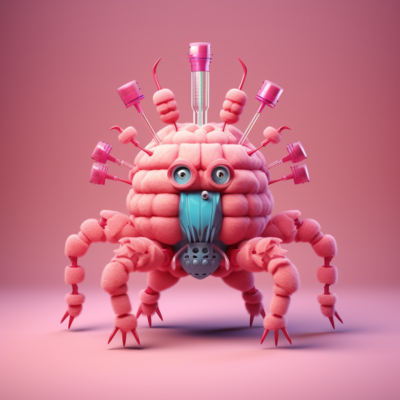Mosquitos hate coconut, CRISPR-made viruses, surprise pancreatic cancer vax, and more
12 May 2023
Posted by Andrew Kantor
Georgia families lose lawsuit
Georgia families that sued drug distributors over their role in the opioid crisis — “the first lawsuit brought by individual victims of the opioid epidemic against pharmaceutical companies” — have lost their case.
After barely a day and a half of deliberation, the jury concluded that the companies — two of the nation’s largest medical distributors, McKesson and Cardinal Health, and a third regional company — were not liable. The plaintiffs – 21 relatives from six families – had filed a lawsuit under a rarely used state law that allows relatives of drug addicts to sue drug dealers.
(We covered the suit back in February.)
Know your mental health first aid
Mental health is not to be trifled with. If people around you — patients, co-workers, friends — need help, you should at least be able to identify the problem and be a first responder.
PharmWell, a professional health & wellness program of the Georgia Pharmacy Foundation, is pleased to make Mental Health First Aid training available as a CPE course for pharmacists and pharmacy techs.
Mental Health First Aid is a 7.5-hour course that teaches you how to identify, understand and respond to signs of mental illnesses and substance use disorders.
[ logo ]
Get the skills not to solve the problem, but to help someone take the first steps toward treatment. Yes, it’s priceless info, so the foundation is just asking to cover its costs. It’s making this training available to pharmacists, pharmacy techs, and student pharmacists for $49.00.
It’s live, Saturday, July 29 in Tifton. CLICK HERE for more info and register today!
A personalized cancer vaccine
Scientists in New York and Germany have — unexpectedly, even to them — created what appears to be a vaccine against pancreatic cancer. It’s an mRNA-based vaccine, manufactured by BioNTech, that uses patients’ tumors to create the proteins that the immune system is instructed to attack. Yes, that means each vaccine is personalized, so it’s not a simple off-the-rack solution. But if you’ve got pancreatic cancer, this could be — dare we say it? — a game-changer. Or at least, as one expert put it, “a milestone.”
Building a better phage
Bacteriophages kill bacteria. But finding the right phage for the specific bug you want to kill is hit or miss (more often it’s miss). But you can use CRISPR/Cas to edit genes, including genes in phages.
You see where this is going.
An international team of biomed engineers found phages that attacked E. coli in general, then used CRISPR to tweak the phages to attack specific strains of the bacteria. By using phages to kill the infection, patients’ gut biomes aren’t destroyed at the same time.
A cocktail of four of these phages […] effectively targeted bacteria in biofilms and reduced the number of E. coli in a manner that surpassed that of naturally occurring phages. Further, they showed that the cocktail of phages was tolerated well in the gut of mice and mini pigs while reducing the emergence of E. coli.

Don’t smell like dinner
It’s obvious when you think about it: If your soap makes you smell like flowers, you smell like flowers to mosquitos. Virginia Tech biochemists figured that out, and decided to see which soaps mosquitos didn’t like.
The answer: coconut. Skeeters don’t like it, but they sure as heck liked the floral scents.
“Just by changing soap scents, someone who already attracts mosquitoes at a higher-than-average rate could further amplify or decrease that attraction.”
The preliminary research focused on just four products (three floral, one coconut), so now they need to confirm the finding applies across brands.
The Long(ish) Read: Why are they chronic?
Why are some diseases and conditions curable, but others chronic? A UC San Diego medical professor has a theory about why “the root cause of the chronic symptoms is not changed by treatment.”
[He] posits that the root cause of many chronic diseases lies with disruption in the normal sequence of mitochondrial transformations needed to initiate and complete the healing cycle. He has called this universal response to infection, stress, or injury, the cell danger response or CDR.
[…]
[But sometimes] CDR continues to sound the alarm even after the originating threat is gone. Inflammation and cell dysfunction persist, resulting in chronic symptoms.
Short Takes
No backsies
Eli Lilly appealed a $61 million penalty for “skimping out on Medicaid rebates,” but it backfired: The company was instead ordered to pay $183 million because the judge ruled it fell under the False Claims Act which provides for treble damages.
Long Covid: Where you live and what you do
People in healthcare professions (patient-facing or not) and in poorer areas are more likely to suffer from long Covid, according to a big British study. In fact, the risk for healthcare workers was 76% higher. (It didn’t make clear whether the people themselves were lower income, or just that they lived in a low-income area.)


